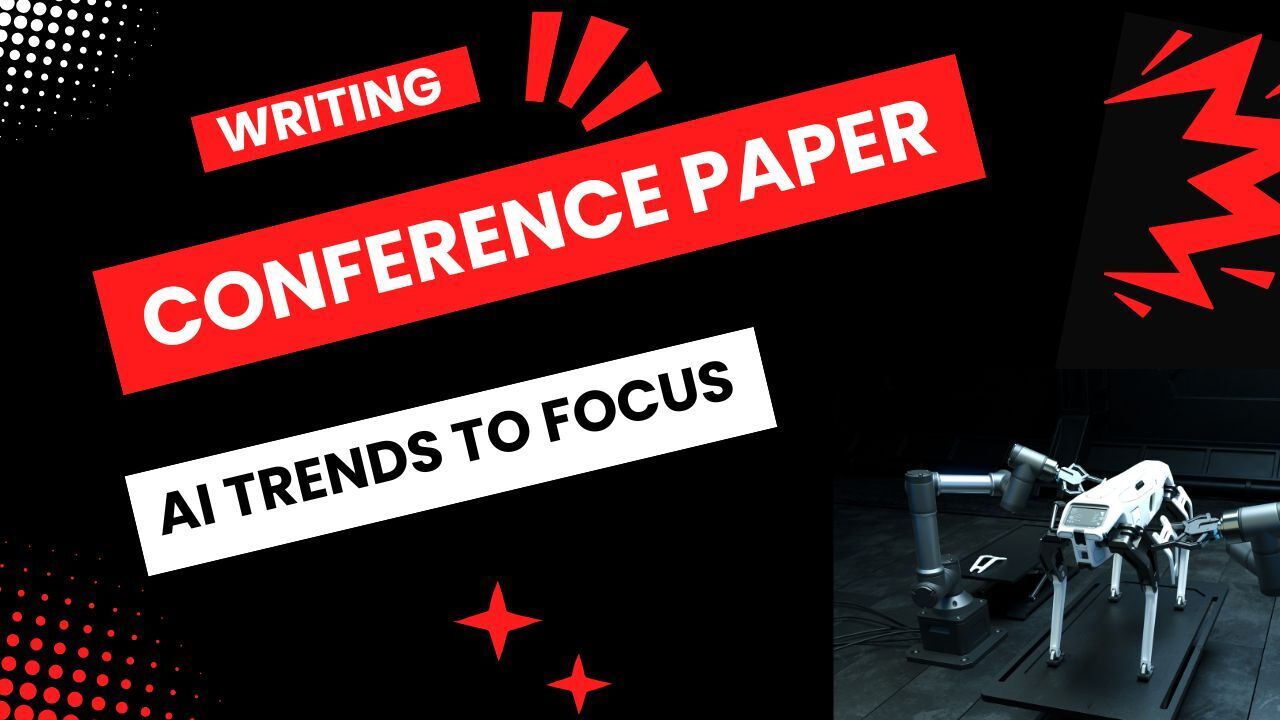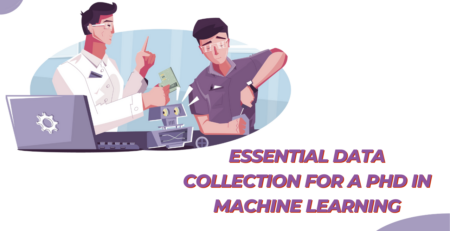Writing Your First Conference Paper: AI Trends to Focus On
Kenfra Research - Shallo2025-01-31T15:27:36+05:30Writing your first conference paper is challenging and exciting, especially in the fast-paced world of artificial intelligence (AI). With AI transforming industries like never before, there are numerous research topics that can be explored in the given timeframe. This blog post will therefore take you on a course to writing your first conference paper and will present the key steps connected with the process. Also, we will indicate various current trends within AI that influence the direction of industry development— for example, healthcare, ethics, and deep learning— which would help you keep your work up to the current standard. These trends will help you achieve timeliness and impact in your research and add significantly to the fast-growing AI community.

1. Understand the Conference's Purpose and Target Audience
The scope of the conference and its target audience should be understood prior to starting the writing. Different conferences may have different scopes, and an understanding of what your readers or participants expect will allow you to write a truly impactful paper.
2. Choosing the Right AI Trend for Your Paper
As AI is developed, select a topic within the literature that leaves room for innovation. Choosing the correct AI trend for your article should be based on relevance and pair that with expertise. A few current AI trends to consider are the foundation on which to build your conferences paper.
a) Deep Learning and Neural Networks
Deep learning is at the core of AI advancements. Writing about breakthroughs in neural network architectures or novel applications of deep learning (such as in autonomous vehicles or voice recognition) could make your paper as cutting-edge.
b) AI in Healthcare
AI is transforming healthcare by facilitating predictive analytics, enhancing diagnostics, personalizing treatment regimens, and enabling predictive analytics. The integration of AI with medical imaging, patient data analysis, robotic surgeries are a popular topic.
c) AI and Ethics
As AI systems become increasingly widespread, concerns about their ethical implications are rising. Topics like, data privacy, bias in AI algorithms, and transparency in decision-making are all critical issues that need to be addressed.
d) Natural Language Processing (NLP) and Conversational AI
With the rise of, chatbots, voice assistants, and language translation tools, NLP has become one of the most fascinating fields in AI. You can focus on recent advancements in NLP, such as transformer models, and their applications in industries like content creation, customer service and mental health.
e) AI for Sustainability
AI has enormous potential to address global issues including environmental sustainability, energy efficiency and climate change. Investigating how AI can help reduce carbon footprints, promote sustainable practices, optimize renewable energy usage in various industries is a growing trend gaining significant attention.
3. Crafting a Strong Research Question
After selecting a topic, devise a relevant research question in a narrowed manner, concerning either knowledge gaps or new approaches to a known issue. A transparent research question is strictly essential as this guides your methodology and analysis.
4. Methodology and Data Collection
In the field of AI research, a strong emphasis is placed on both data and experimentation. It is essential to utilize high-quality datasets and reliable methods to substantiate your results, guaranteeing that your approach is sound and can be replicated by others.
5. Write with Clarity and Accuracy
Explain difficult AI concepts in a way that’s understandable to your audience. Minimize jargon and give definitions when needed. Visual aids such as graphs, charts and diagrams can present your findings clearly.
Remember to structure your paper logically:
- Abstract: A brief overview of your paper’s objectives, methods, results, and conclusions.
- Introduction: An explanation of the problem, objectives and the importance of your research
- Literature Review: A discussion existing research and how your paper advances the field.
- Methodology: A clear description of your research design, tools, and methods of data collection.
- Results & Discussion: Present your research findings and analyse the implications of results
- Conclusion: A recap of your research and recommendations for future exploration.
6. Revise, Proofread, and Submit
Once your paper is complete, spend some time to revise and proofread. Typos, grammatical errors, and unclear sentences can reduce the impact of your paper. It is also crucial to get feedback from mentors, peers or colleagues to strengthen your paper before submission.
7. Prepare for Presentation
If your paper has been accepted, you will likely have to present it. Rehearse your presentation so that the key findings are clearly highlighted. Be ready to provide your results in a very confident and to answer whatever question arises from the audience.
Conclusion
Writing your first conference paper in AI can be a rewarding experience that boosts both your academic and professional development. By focusing on current AI trends like deep learning, NLP, healthcare, Ethics, sustainability, and following a structured approach to writing, you can craft your first conference paper that addresses an important research issue and leaves a lasting impression at a competitive conference. Selecting the right trend is crucial. So, select your AI trend carefully, maintain your focus, and let your research make a meaningful contribution to the rapidly advancing field of Artificial Intelligence! Eventually, your article has the capacity to bring genuine change and advancement to help you and the AI community as well.
Kenfra Research understands the challenges faced by PhD scholars and offers tailored solutions to support your academic goals. From topic selection to advanced plagiarism checking.











Leave a Reply